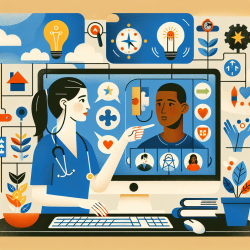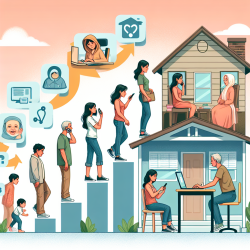Introduction
In today's rapidly evolving technological landscape, artificial intelligence (AI) is playing a pivotal role in transforming various sectors, including education and therapy services. As practitioners in the field of online therapy, it is crucial to stay informed about the ethical implications of AI and how it can be harnessed to enhance service delivery. The research article "AI4People—An Ethical Framework for a Good AI Society: Opportunities, Risks, Principles, and Recommendations" provides valuable insights into the ethical considerations surrounding AI and offers actionable recommendations for creating a Good AI Society.
Understanding the Ethical Framework
The AI4People initiative outlines a comprehensive ethical framework that identifies the opportunities and risks associated with AI. It emphasizes the importance of promoting human dignity and flourishing through AI technologies while mitigating potential harms. The framework is built on five ethical principles:
- Beneficence: Promoting well-being and ensuring AI benefits humanity.
- Non-maleficence: Avoiding harm, particularly in terms of privacy and security.
- Autonomy: Ensuring individuals retain decision-making power.
- Justice: Promoting fairness and preventing discrimination.
- Explicability: Ensuring AI systems are understandable and accountable.
Implementing Ethical AI in Online Therapy
For practitioners in online therapy services, integrating these ethical principles into practice can significantly enhance the quality and effectiveness of therapy. Here are some ways to implement these principles:
- Beneficence: Utilize AI to personalize therapy sessions, ensuring they are tailored to meet the unique needs of each student. This can improve engagement and outcomes.
- Non-maleficence: Implement robust data protection measures to safeguard student information and maintain confidentiality.
- Autonomy: Empower students by involving them in the decision-making process regarding their therapy goals and methods.
- Justice: Ensure equitable access to therapy services for all students, regardless of their background or circumstances.
- Explicability: Maintain transparency about how AI tools are used in therapy and provide clear explanations to students and parents.
Encouraging Further Research and Development
While the AI4People framework provides a solid foundation, it is essential for practitioners to engage in continuous learning and research to stay abreast of advancements in AI ethics. Attending conferences, participating in webinars, and reading publications on AI and ethics can provide valuable insights and help practitioners refine their approaches.
Furthermore, collaboration with AI developers and policymakers can ensure that the tools used in online therapy are aligned with ethical standards and contribute to a Good AI Society. By actively participating in the development and assessment of AI tools, practitioners can advocate for ethical considerations and influence the direction of AI technologies in therapy.
Conclusion
Incorporating ethical AI practices into online therapy services is not only beneficial for students but also essential for building trust and credibility in the field. By adhering to the ethical principles outlined in the AI4People framework, practitioners can enhance their skills, improve service delivery, and contribute to the development of a Good AI Society.
To read the original research paper, please follow this link: AI4People—An Ethical Framework for a Good AI Society: Opportunities, Risks, Principles, and Recommendations.










